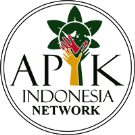About the Journal
| Journal title | : | Jurnal Belantara |
| Initials | : | JBL |
| Editor-in-chief | : | Andi Chairil Ichsan |
| Accredited | : | SINTA 3 |
| DOI Prefix | : | 10.29303/jbl |
| Indexing | : | DOAJ, Google Scholar, and view more |
| Peer Review Process | : | Doble-blind |
| Frequency | : | 2 issues per year (March & August) |
| Publisher | : | University of Mataram |
| Organizer | : | Forestry Study Program |
| Citation Analysis | : | Dimensions, Google Scholar |
| Language | : | English |
Jurnal Belantara is an international journal for academics, practitioners, and bureaucrats that encourages the management of natural resources that are just and sustainable. Jurnal Belantara is an electronic journal regularly published twice a year (March and August) by the Forestry Study Program at the University of Mataram.
Jurnal Belantara has been accredited by the Ministry of Higher Education, Science, and Technology of the Republic of Indonesia with SINTA 3 from 2024 to 2028 according to decree SK No 177/E/KPT/2024.
Focus and Scope
Jurnal Belantara is a research and editorial journal for academics, practitioners, and bureaucrats that promotes the management of natural resources in a just and sustainable manner. Jurnal Belantara is an electronic journal regularly published twice a year (March and August) by the Forestry Study Program at the University of Mataram.
The focus of this journal is directed at the fields of forestry and environment, including:
- Forest Management
- Silviculture
- The technology of Forest Products
- Conservation of Natural Resources
- Ecology
- Forestry Policy and PoliticsÂ
- Ecotourism
- GIS and Mapping
- Social Forestry
- Management of watersheds
- Environmental Science
- Environmental impact
- Environmental Planning and Management
- Climate change











